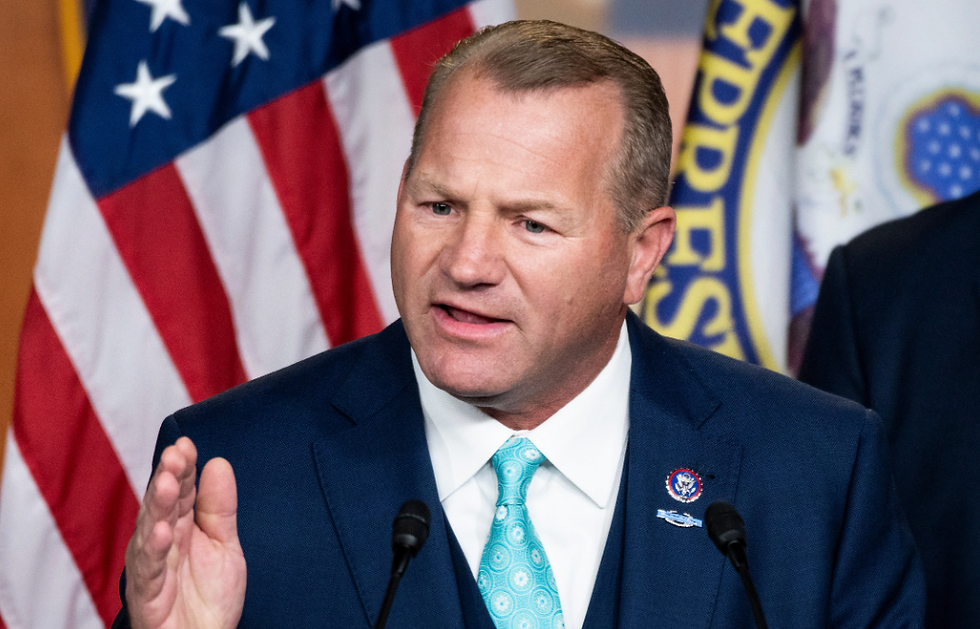Senators Offer Solution to Pilot Shortage
- icarussmith20
- Mar 31, 2023
- 4 min read
A bipartisan group of group of Senators has introduced a bill designed to immediately and directly address the national shortage of pilots by raising the mandatory retirement age for commercial pilots from 65 to 67.
The Let Experienced Pilots Fly Act of 2023 was proposed March 22 by Republican Congressman Troy E. Nehls of Texas’ 22nd District, and introduced to Congress by Democrat Senator Joe Manchin of West Virginia, who was joined by Lindsey Graham, Chuck Grassley, Cynthia Lummis, Marsha Blackburn, Mark Kelly and Deb Fischer.

The bill would allow commercial pilots to continue operations up to the age of 67. Also included in the bill is a legal requirement for the FAA to submit a report to Congress evaluating further age increases for future reference. The Bill would legally oblige U.S. airlines to introduce rigorous medical and training examinations, helping to bring the fitness of commercial pilots up to the standards upheld by the rest of the aviation industry.
Speaking about the legislation, Senator Manchin said, “This commonsense reform will help ensure air service is safe, reliable and efficient while addressing the pilot shortage”. Troy E. Nehls introduced the bill to the House Floor, announcing that he was “proud to reintroduce this bill in the 118th Congress to address the glaring pilot shortage affecting Americans and airlines nationwide.”
The bill was drafted as a solution to what is the worst pilot shortage in living memory for US aviation. After many pilots were offered voluntary redundancy during pandemic-induced contraction of the aviation industry, the return of air travel has overwhelmed airlines. The response many airlines have adopted is simply to cut flights they cannot find pilots for. At the same time, the majority of pilots turning 65 face mandated retirement; many of them are fit enough to move into piloting corporate jets and charter flights well beyond the current legally mandated age for commercial flight.
Southwest Airlines announced in early February that, effective February 7, Southwest pilots would no longer need the industry standard of 1,000 hours on jets or turboprop aircraft, after the airline halved the requirement for applicants to just 500 hours. How many multiples of 1,000 hours Southwest’s 65-year-old pilots who have retired since this February announcement will have is not a statistic available to the public.

Flying Magazine estimates that the average airline pilot flies 75 hours per month, totaling to 900 a year. The GAMA Databook of 2019 reported the average age of student pilots as 33.5. Roughly, then, the average Southwest pilot facing mandatory retirement will have spent almost 28,000 hours flying, 56 times the new Southwest threshold.
It is hard to dispute the idea that raising the mandatory age to 67 would help resolve the shortage of airlines. One argument against has been that pilots beyond the age of 65 would not be fit enough to fly safely. Senator Lindsey Graham, who led the Republican group of lawmakers sponsoring the bill along with Democrat Joe Manchin, clarified that the bill “does not change or alter any other qualification – beyond age – to become a commercial airline pilot”. Given the bill’s requirement for pilots over 65 to possess a first-class medical certificate that would be reviewed every 6 months, 66-year-old pilots in full fitness with decades of experience is surely a better option than fresh Southwest pilots who have, quite literally, half as much experience as those recruited in 2022.
The bill is almost identical to the Republican-sponsored proposal in summer 2022 which stalled after it failed to gain sufficient support. At time of presentation to Congress, the 2023 legislation was sponsored by 28 Representatives, and introduced by 7 Senators, among whom were Democrats and Republicans.
The current retirement age of 65 was introduced in 2007, when it was raised for the first time in 47 years. ALPA initially opposed the 2007 proposal, but reversed their decision once Congress was overwhelmingly in favor of the bill. ALPA has made clear that it is once again opposed to the bill.
ALPA President, Captain Ambrosi, said Friday March 24: “This legislation is in search of a problem. Raising the retirement age would only increase costs for airlines, worsen the post-COVID training backlogs by using much-needed training cycles to train pilots over 65 who would be limited to domestic operations, and introduce unnecessary risks to passengers and crew alike.”

There is indisputably a shortage of pilots, with current estimates suggesting the US airline industry is 8,000 pilots short. Flights that are currently not operating due to the shortage could return to the skies if the bill passes, and would help offset the costs of training the next generation of pilots. The training cycles required for senior pilots are a small fraction of the cycles available. The robust fitness clauses of the legislation would prevent unfit pilots from continuing to fly, and would lessen the need for other airlines to adopt Southwest’s strategy of going well below the industry standards in recruitment, which inherently endangers passengers.
Capt. Ambrosi also said that “major airlines and a significant majority of pilots and passengers oppose this move”. Major airlines have yet to pass any comment whatsoever. One group that has issued a statement on the bill is the Regional Airline Association (RAA). Regional airlines have been among those hit hardest by the pilot shortage; RAA president Faye Malarkey Black said that “324 airports have lost an average of one-third of their air service and 53 airports have lost more than half of their air service. Fourteen airports have lost all flights.”
When asked about the legislation, Black responded, “Raising the pilot retirement age keeps experienced pilots – particularly captains – in place and will have an immediate, positive impact on the pilot shortage.”





Comments